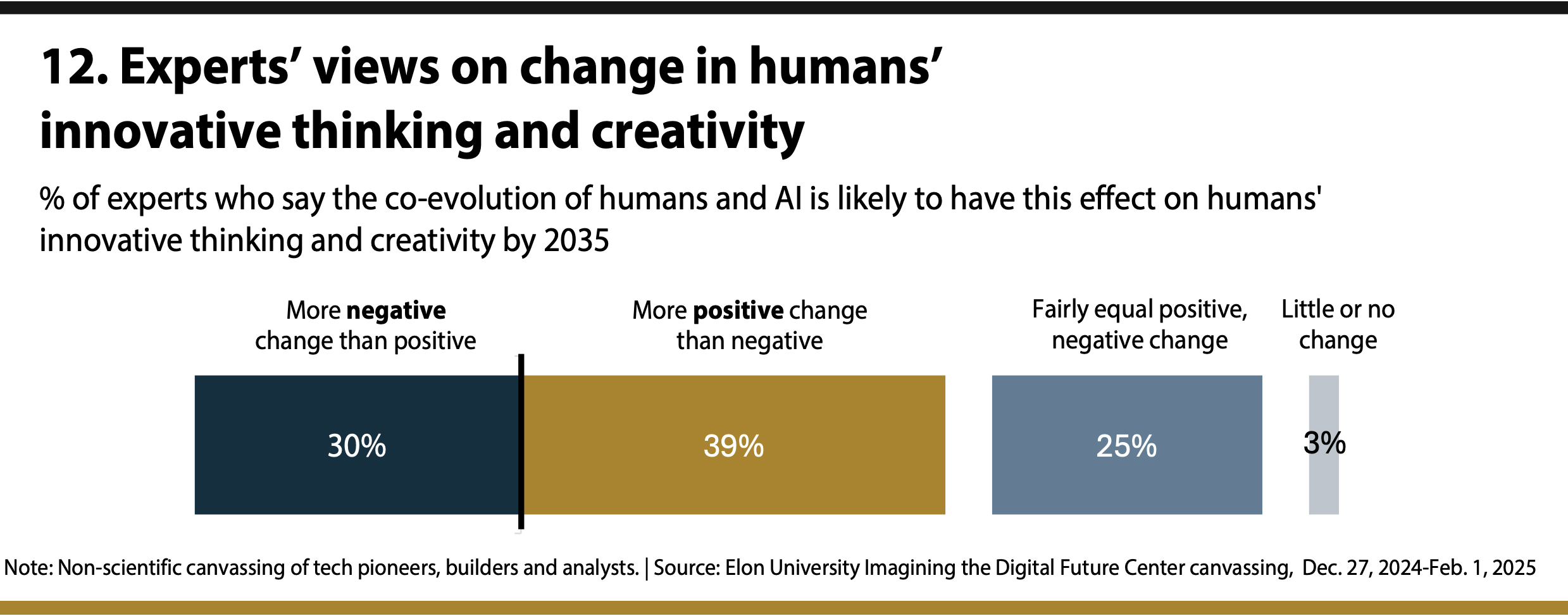
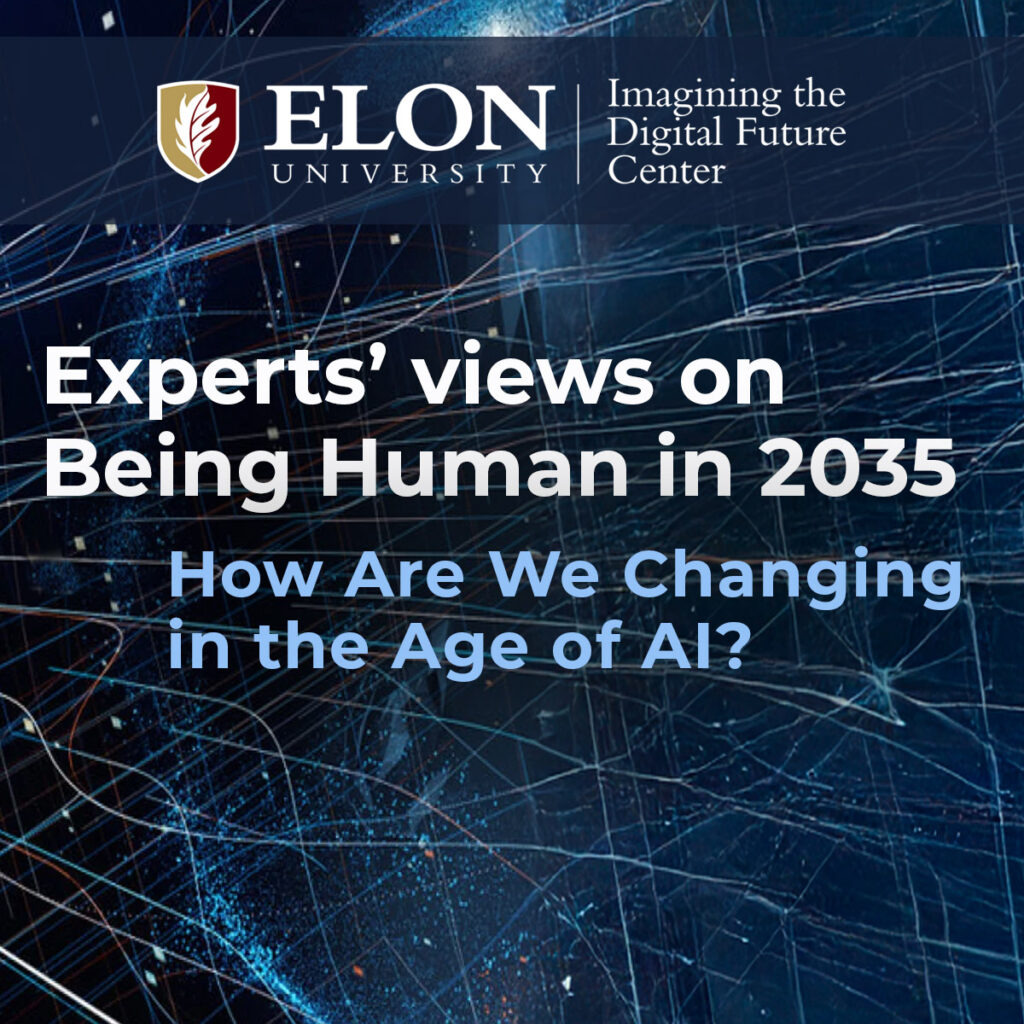
These experts expected in 2025 that by 2035 there will be…
30% – More negative change than positive change
39% – More positive change than negative change
25% – Fairly equal positive and negative change
3% – Little to no change
The optimistic experts expect that humans’ implementation of AI and the knowledge they gain through the use of AI tools will help expand their own, individual capabilities for creativity and innovation as they begin to think and create in new ways, exploring numerous possible sources of inspiration and discovering striking new possibilities for expression. Others worry about the loss of some essential human elements of creativity that AI cannot necessarily replicate – the struggle, vision and deep understanding that come from the laborious, hard work of mastering a craft. Another concern is an overall “standardization to the mean” or humanity settling for repetitive mediocrity.
A selection of related quotes extracted from these experts’ longer essays:
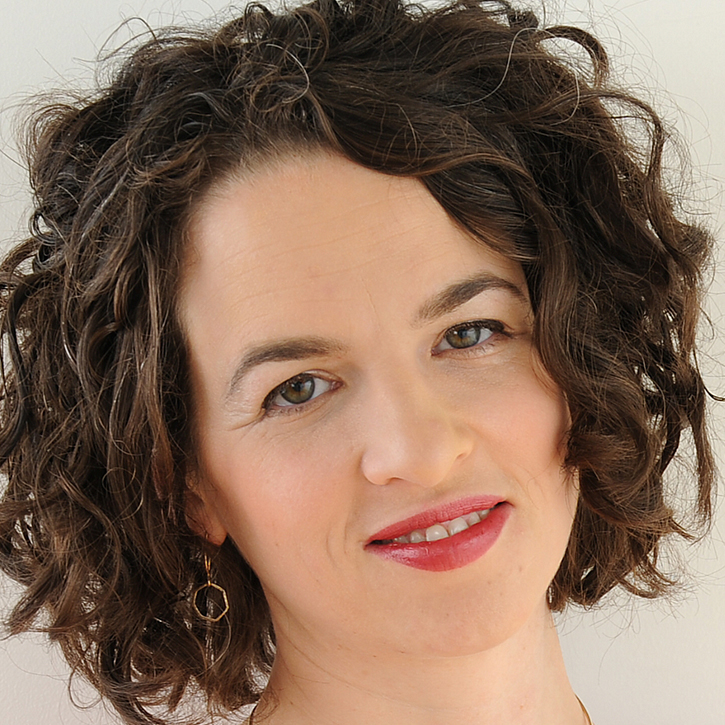
“If humans embrace AI as a source of change and challenge and we open ourselves to fundamental questions about the nature of thinking and the boundary between human and machine AI could enable a vast expansion of human capacity and creativity. Right now, that feels unlikely for reasons that are economic, social and political, more than technological. If those obstacles are lifted, people with the time, money and tech confidence to explore AI in a non-linear way instead of for narrowly constructed productivity gains or immediate problem-solving can achieve great things. Their use of AI will not only accelerate work and open entirely new fields of endeavor, but it will enable ways of thinking, creating and collaborating that we are only beginning to imagine. It could even possibly deepen the qualities of compassion, creativity and connection that sit at the heart of what we consider human.” – Alexandra Samuel, data journalist, speaker, author and co-founder and principal at Social Signal

“It seems likely that many activities that are contested today will be resolved such that norms [will] allow for AI assistance. Scientific papers, journalism and even most classroom work will be authored with AI collaboration, much as we now accept calculators and spell-checkers. Human-AI artistic and musical collaborations are inevitable, and we will see a flowering of creativity as creative work becomes more accessible to more people. In that sense, AI may actually help us to express our humanity more fully.” – Jeremy Foote, computational social scientist teaching and doing research at Purdue University

“Previously, artists would spend thousands of hours perfecting their skill and their vision simultaneously. With AI tools, the technical skill will become diminished, making it easier to create. … [However,] in the hands of skilled artists who have taken the time to build their craft, AI can become an assistant to speed their process and give them a chance to consider hundreds of alternatives they would not have had the chance to do. This is a positive change. But these artists will have to compete with and be outnumbered by, unskilled people who are simply exploiting the technology with little sense or vision.” – Matt Belge, founder of Vision & Logic LLC

“AI will atrophy human rationality. … The impact of this phenomenon will be multi-dimensional. One part is that we will tend to move away from ‘reason’ and more toward ‘faith’ in the results of AI systems. The transition from faith to reason had a profound impact on human nature over the course of centuries as the rationality of the Renaissance era took hold. A return or pivot back to faith-based reasoning will have equally significant impacts. More particularly, it is highly likely that human creativity and faculties for systematic reasoning will deteriorate. … If we come to accept AI as ‘the word’ we will ultimately cease to strive to create our own new work.” – Paul Rosenzweig, founder of Red Branch, a cybersecurity consulting company, and a senior advisor to The Chertoff Group
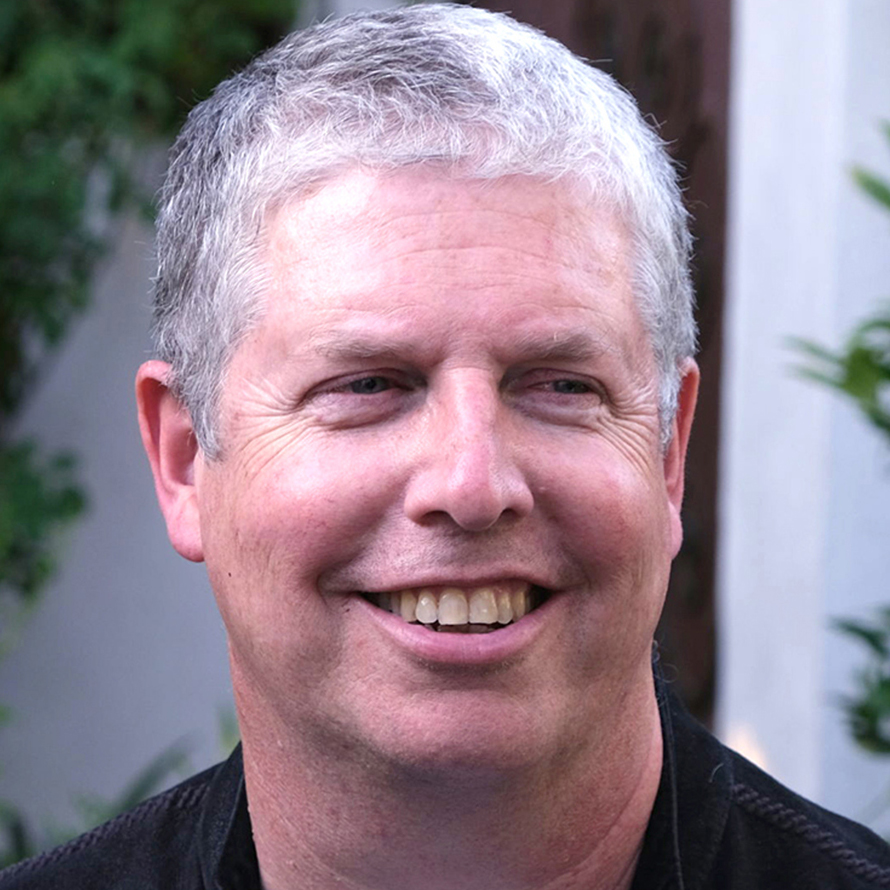
“We need AI to understand the apparently insatiable human thirst to produce as well as consume digital and digitized art, design and music. … AI has the capacity to become much more than video, it will be both the marble and the chisel, the brush and the canvas, the camera and the frame. … But as the systems complexify and evolve, they will start drawing from AI-produced models. In fact, they already are. This contributes to the ‘neo’ in neo-synthetic. What we are seeing is the emergence of an electronic parthenogenesis, a virgin birth of sorts. It’s not just humans producing synthetics in labs and making tires and snack foods out of them, it’s the machines themselves synthesizing themselves.” – Peter Lunenfeld, director of the Institute for Technology and Aesthetics at UCLA
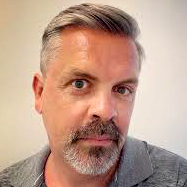
“There are many faces to hybrid intelligence in 2035, but I expect that two aspects of it will be particularly noticeable. I refer to them as ‘The Octopus’ and ‘The Mediocrity Engine.’ … Nearly everyone is ‘average’ in 2035, using their Mediocrity Engines (also known as AIs) to generate good enough work, good enough text and good-enough lives. Some will have resisted the call of the average and started working with AIs that do not aim to mimic humans and standardize everything to the mean and the median. They communicate with Octopodes, strange new intelligences – alien even – that do not so much hallucinate as tell tales of the world from the perspective of entirely new intelligences. The meeting of Octopode and human, two very different intelligences both with their own strong suits, generates great leaps in thinking, highly creative works, true innovations.” – Alf Rehn, professor of innovation at the University of Southern Denmark and head of the Center for Organizational Datafication and Its Ethics in Society
> UP NEXT – Compelling Ideas in This Report … A set of brief, intriguing observations shared by several experts …
The next section of this report is a quick-hitting collection of one- and two-line quotes from longer essays that offer brief, thought-provoking predictions about what might come by 2035 for humans in the age of AI.


